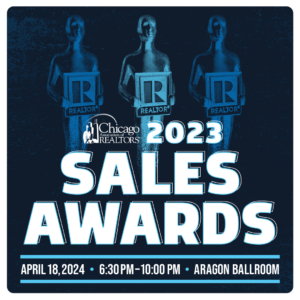It’s easy to look at negotiation as a lofty craft mastered only by tried-and-true entrepreneurs and sales professionals, but the truth is, negotiation is everywhere. We live and breathe it daily with our family, friends and coworkers. We negotiate without even realizing it.
But what happens when we take a step back and look at negotiation through the lens of real estate? What does a good negotiator look like?
“Negotiation” is defined as a dialogue between two or more parties to reach a beneficial outcome. Staying aware of who you are negotiating with, for and against is crucial, because it lays the groundwork for all your preparation. Why does preparation matter so much? Because negotiation is such a non-stop facet of our lives and our business, a negotiator is only as good as they are knowledgeable. {pull quote}
As you prepare, remember we negotiate for our clients, and against our customers. We have an ethical obligation to provide factually-based information to all parties— even those who are not our direct clients.
FUNDAMENTALS OF NEGOTIATION
- Stay calm
- Smile
- Do your research
- Know your strengths & weaknesses
- Pay attention to body language
- Practice humility
- Be confident
NEGOTIATION BEST PRACTICES
Know your strengths and weaknesses, and capitalize on them. Confidence in your strengths, combined with humility in recognizing your counterpart’s strengths, builds rapport not only with your clients, but also with other real estate professionals and service providers.
When you ask questions, begin with “how” or “what.” These questions prompt your client or the other party to contemplate their responses, ensuring you have wholesome, productive conversations. And don’t shy away from conversing! Negotiation isn’t a showdown across a table or through a keyboard. It’s a conversation seeking to settle a disagreement. Building these conversational habits into your standard communication will up your negotiation game by making you a better communicator.
NEGOTIATING WITH CLIENTS
How well do you know your client? They may tell you a list of wants and needs in amenities or neighborhoods, but who can list everything in the back of their mind? An avid cyclist says they want space to store their bike, but they might not mention that having a bike path close by is just as important.
You can get to know your clients from a market standpoint through the REALTORS® Property Resource. The RPR’s Consumer Segmentation Sheet offers a profile of the consumers in a searchable area, helping you understand your current clients and know where to market and pick up leads.
When you communicate with your client, do so via the medium they are most comfortable. Texting and email have become a predominant method of communication, and if either one isn’t your forte, work hard to master it.
For example, when you’re conducting long-distance business with your client who lives across the country, or lives in another country entirely, video chat apps like Skype or WeChat might be the go-to method of communication.
A good negotiator records and archives all communication; this is a benefit of using emails and text messages. Use these archives for risk management and liability as well as for negotiation strategy. Refer to previous conversations to support your statements and actions. “I apologize, Mr. Client, that must have been a misunderstanding on my part. As I look back through my text messages, I see that I wrote 2 bedrooms. Moving forward, would you like to change our searches to 3 bedrooms?”
Remember, is it better to be wrong and successful, than right and unsuccessful! A key part of negotiation is being willing to humble yourself.
When working with seller clients, sit down with them in the beginning and set expectations. Talk to them about average days on the market, review what the walk through or inspection will look and feel like and so on. Not only will it save you future arguments and client frustration, it will also be a valuable reference.
For a negotiator to be the most prepared, they must know their client inside and out: their ranking of priorities, what a best and worst case scenario looks like and the ultimate walkaway point— all in writing.
NEGOTIATING WITH OTHER AGENTS
Our word and our reputation are our strongest negotiation tools. So, treat your fellow agents well and keep them and their clients’ concerns on the top of your mind. It will pay off!


Great negotiations are win-win situations, because win-lose situations are the kiss of death to any business deal. After all, the point of negotiation is to find a beneficial outcome among all parties.
When preparation meets opportunity, magic happens. Your preparation should be composed not only of both sides’ wants and needs, but also in-depth knowledge about your market, product and area.
A prepared, informed agent knows the indicators of where their market is going and how their product fits in it on both macro and micro levels. The macro level is the zoomed out big picture, and it could be based on geography or investment, while micro is typically local. When you know the big and small picture, you know where your client’s and the other agent’s client’s priorities fit in.
As you conduct your market research, keep these stats and reports on hand. It will help to back up your statements with immediate proof of your research.
Remember, as negotiations come down to the wire and you find yourself haggling over price, you might need to review your client’s priorities. A young renter may be willing to pay more for the in-unit laundry they’ve never had or the apartment half a mile closer to the L station. A local nail salon or bakery may have to wait a few years before making a profit off their new store, but the fact that their desired retail space is in a neighborhood of Soul Cycles, dog parks, and health-minded Millennials probably makes a higher-than-desired price worth the investment. Understand your client, and you’ll be ready to negotiate.
At the end of the day, you’ll find when it comes to upping your negotiation game, your greatest asset is the preparation you put into your arsenal.









